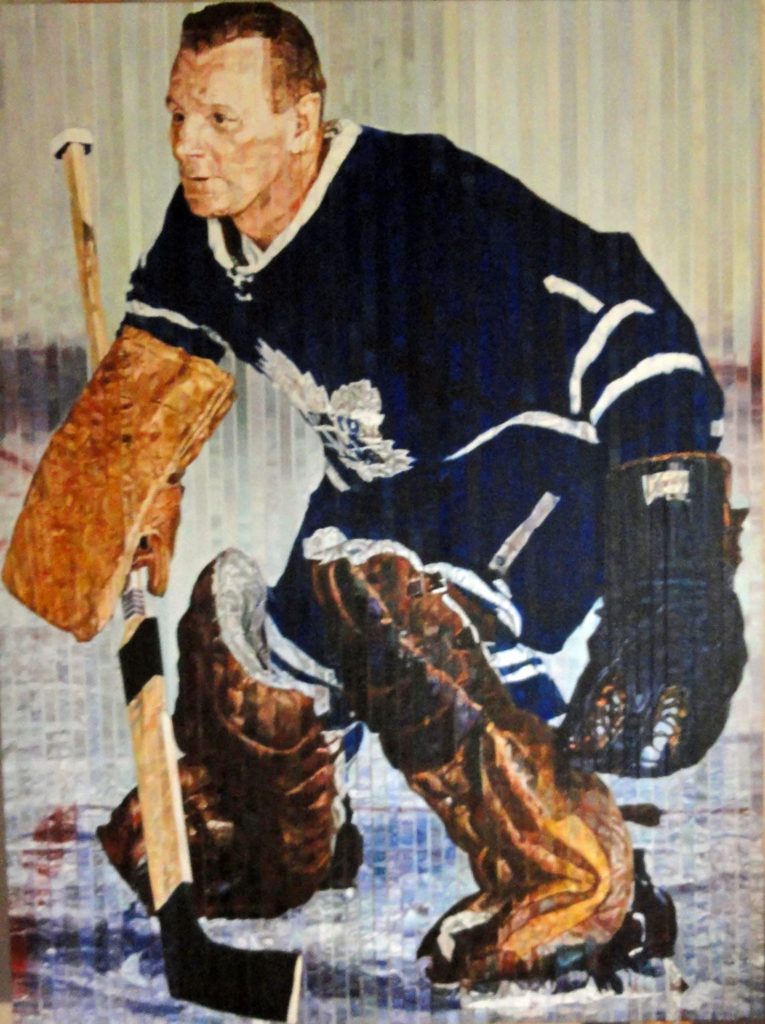Ron Crocker: Guy’s singular contribution was to weigh and measure the entitled and authoritarian politics of his time on scales of propriety and fairness.
January 2022
Can you talk about your personal relationship with Ray Guy?
It varied over time. I knew Ray for more than 45 years. We were closest when we were much younger, late 1960s and early 1970s when we worked together at The Evening Telegram, and for two to three years shared digs in St John’s.
The early relationship was highly sympatico. We were both baymen – Protestant Baymen – which mattered in those days. Though nearly a decade apart in age, our childhoods had many common components – outport denominational schooling of indifferent quality, occasionally redeemed by a great teacher; a shared penchant for funny, absurd, ironic, poignant stories from childhood; and an ability (an unequal ability; he was better at it than me) to make each other laugh.
At the time I was obsessed with becoming a reporter. I was in awe of Guy … adore anyone transparently, and they will either hold you in contempt or treat you very kindly. Fortunately, Guy chose the latter. He became a mentor, although neither of us would have used such a word or characterized the relationship in any way other than as friends.
The early friendship had many inequalities, most to my disadvantage. Ray was smarter than I was; better educated and informed. He was funnier and more original. When we first met in 1966, I was a copyboy at the paper – fresh out of grade 11, right off the turnip truck; actually right off Reid’s Trinity South bus. Ray already was Newfoundland and Labrador’s most skillful newspaper writer. Guy had literary achievements. The most I had were a few literary pretensions; on a good day, perhaps, literary aspirations. During those early years I hopped back and forth between the Telegram’s newsroom to Memorial University. Ray seemed to enjoy watching me thaw out under the hot glare of MUN’s undergraduate English program! He already had two years at Memorial and three at Ryerson in Toronto behind him. He also was the most voracious reader I had ever encountered.
As the years and normal adventures rolled on, we became less close, and closer to others, of course; but never really detached. I attended Ray’s wedding to Kathie Housser in 1975. I was not Ray’s “best man.” Our mutual friend Bob Benson was a better best man anyway. (I probably would have had to have my suit back by 6 o’clock.)
Over decades, I tracked Ray’s career as closely as I could, and I know he tracked mine. He had help from Kathie, who, like me, was a CBC lifer.
When Ray and I managed to meet over the years, we still mostly laughed. Ironically, a few of our best later-life get-togethers came during a period of the late 1990s when I was a CBC executive in NL, and both the CBC, and Ray personally, were being sued for defamation by a prominent former politician and newspaperman, Bill Callahan. I think it was because this was no laughing matter that it became something of a laughing matter between us. Eventually, the lawsuit was settled to Bill’s advantage. Subsequently, I heard distressing rumours that Ray felt the CBC had sold him down a river, or that he even blamed me. That may have been true, but there was no hint of that dynamic in our very few one-on-one meetings that came later. Those remained friendly, entertaining, as-everish.
Can you define his character in three words?
If you insist: Lonesome. Courageous. Kind.
Do you have a favorite Ray Guy column or saying?
Many.
I think several of my favorite columns and essays are excerpted generously in the book. I love his allegorical essay called “A Christmas Story” in which a Newfoundland grandfather and his very young grandson find themselves together in the Hereafter.
Grand-dad’s more mature appreciation of Upper Utopia is generously shared with the child, who learns much about the wicked ways the World Below as contrasted with the purity, civility, and tolerance of the World Beyond.
Another fav is Ray’s 1993 television commentary on Newfoundland’s need for denominational fire departments to complement its denominational school system. That short, wicked piece in my view was a near-perfect example of brilliant satire in the service of essential political commentary.
Aunt Cissy Roach’s July 1970 tirade against the various “peers of the realm” who have Lorded it over NL forever – from Lord Baltimore, founder of Ferryland, to Lord Taylor of Harlow, a 1960s-era President of Memorial University … but especially the crass newspaper baron, Lord Thomson of Fleet who, to Ray Guy’s profound dismay, had purchased The Evening Telegram from the Herder family only a month earlier.
As for a favorite saying, I thought it was clever when he kept referring to Joey Smallwood in the last few years of his Premiership as “Poor Mr Smallwood.” Poor This One and Poor That One is how people in many outports, Ray’s and mine included, often referred to the deceased. The expression is mainly one of sorrow and pity; but it could be used as well to refer to a deceased person who was not necessarily so dearly departed – implying a kind of grudging generosity with a sly hint of good riddance.
Guy gave people unflattering nicknames. In the mid-1960s there was a Liberal government backbencher named Uriah Strickland, a blustering and blowy retired sea captain who would start his House of Assembly speeches with lines such as, ‘Last night, Mr Speaker, before laying down my head, I turned, as is my custom, to Holy Writ.” Most people called Uriah, Huey. Guy’s moniker for Huey? “They call the wind Uriah.”
How did you research this biography? What archives exist?
Microfiche records of The Evening Telegram at Memorial University were essential. Digitization of the newspaper is underway, but the last time I checked it had reached 1926. With help from others, I hard copied or moved to flash drives literally hundreds of Guy columns and contextual stories from the paper. When Boulder Books came on board, I was delighted to discover that they had copied nearly every Guy column for their two large compilations of Guy’s work. Thereafter I had welcome access to that collection.
The Centre for Newfoundland Studies and the MUN Archives Special Collections have substantial Guy documentary material, from biographical newspaper and magazine pieces to miscellaneous items such as drafts of columns and speeches to personal items such as invoices for freelance pieces. Much of the personal contents had only recently arrived at the university when I began the research and was not well organized or even sorted. Probably in better shape now.
Theses and other academic works on Guy were easy to track down at MUN. Meanwhile, CBC’s helpful librarians in St John’s were kind enough to set me up for several days of auditing or screening Guy’s TV sit-com performances (Up at Ours) and his extensive radio and TV commentaries.
Any student of Ray Guy also has the luxury of a dozen collections of his writing in book form, counting two small children’s volumes. Except from knowing him personally, I learned more about Ray from his own writing than from any other source.
Iris Brett, Ray’s wonderful sister, rummaged through a ton of old stuff at the Guys’ family house in Arnold’s Cove where she still lives. Much of it had been sequestered safely by their mother, Alice. Iris turned up treasure after treasure from Ray’s letters home from Toronto or points south, to letters to Ray from Farley Mowat, to priceless photos.
Major magazines such as Newfoundland Quarterly, Atlantic Insight, and others are available in libraries and archives, and smaller NL periodicals such as Decks Awash also are found at MUN’s CNS.
This material was augmented by a dissociated stash of my personal pack-rat materials – clippings, photos, a few personal notes, and original-copy collection of radio columns that Ray gifted me on an occasion in the mid-1980s. It arrived complete with a covering note defaming a Director of CBC Radio of the era.
Much essential content for the book came from around 25 extended audio interviews I did with Guy’s friends, family, and a couple of surprisingly generous erstwhile Ray Guy antagonists – Bill Callahan was one of them.
What is Ray’s place in NL’s politics, literature, and culture overall?
In politics, Guy’s singular contribution was to weigh and measure the entitled and authoritarian politics of his time on scales of propriety and fairness. Political perfidy did not have to be ferreted out during Guy’s Evening Telegram days. It hid in plain sight. Ray’s role was to describe it cleverly and for common consumption. He was genuinely shocked by what he saw and heard, especially some of the development schemes of JR Smallwood. Ray held stuff up to the light, and lampooned it savagely when all else failed. Guy had no compunction about being unfair himself, for he had assured himself that no overkill on his part could ever trump the outrages he observed daily, often from the Press Gallery at Confederation Building.In Newfoundland literature, his place surely is preeminent in satire. He is arguably Canada’s best as well, to this day. More broadly Guy’s prose stands with the half dozen best writers ever produced in Newfoundland and Labrador. He remains by far our funniest writer. Along with the countless laughs, his writing shines most brightly for its clarity, economy, accessibility, and for its rhetorical energy.Culturally, Ray’s role has been to chisel in virtual stone a record of childhood Newfoundland life in the 1940s and 50s. This record is special for its inclusion of the final decade of Newfoundland as, well, as not a province; just before the compass of the ancient colony swung decisively from East to West.What Guy left has behind in the cultural bin is a treasury in words of the values, verities, and civilities of Old Newfoundland.
What information or incident in this biography do you think will most surprise a reader about Ray Guy?
Those who did not know Ray personally may be shocked to learn that one so funny, so assertive, confident and cocky in print; so hilarious, so snotty at times; could ever have been plagued by severe bouts of depression or could have been literally too shy to speak in social settings that were not totally familiar for him.
Ron Crocker’s new biography, Ray Guy: Portrait of a Rebel ($24.96, 460 pages) is published by Boulder Books. Stay tuned to nqonline.ca – we’ll be posting some excerpts from the book over the next two weeks.



